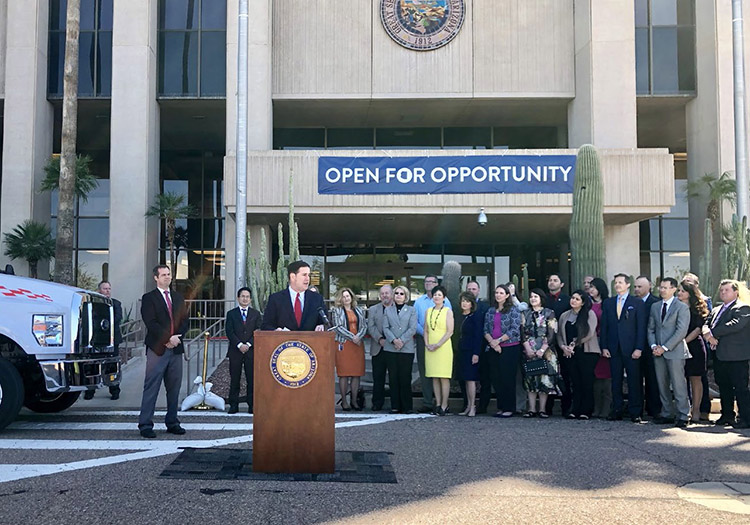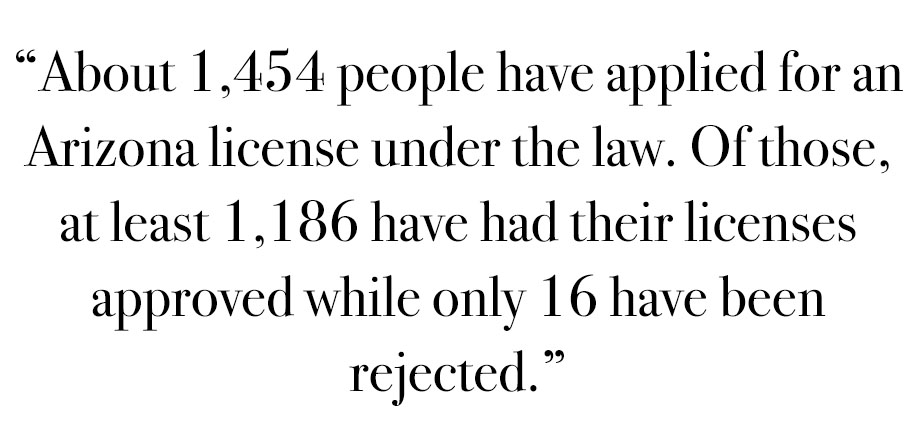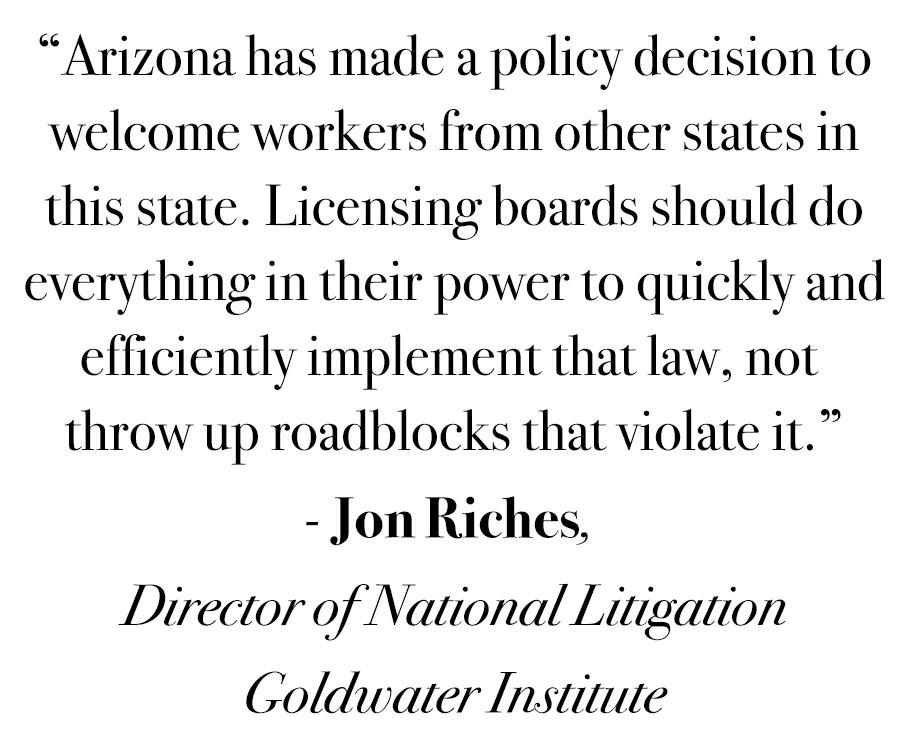As Arizona emerges from its extended economic and employment shutdowns due to COVID-19, more than 1,180 professionals in trades ranging from medicine to construction are ready to go to work, thanks to a law signed a year ago that permits them to quickly obtain a state occupational license.
The state’s new universal recognition law allows people licensed in another state to quickly obtain an equivalent license when they move to Arizona. It bypasses the normal bureaucracy and red tape associated with getting a license to work. Instead, the new law says that a person who comes to Arizona with a license in good standing in another state for at least a year qualifies. There is still some paperwork and verification, and maybe a test on state-specific laws and policies. But for most professions, getting a license under the universal recognition law takes a fraction of the time, money, and documentation they would otherwise have to expend.

Gov. Doug Ducey signed the law in April 2019, and it took effect last August. Since then, about 1,454 people have applied for an Arizona license under the law. Of those, at least 1,186 have had their licenses approved while only 16 have been rejected. The others are either pending or have been withdrawn, often because of missing paperwork or failure to pay fees.
It’s likely there would have been more had the state’s economy and government operations not been largely suspended throughout April to combat the spread of COVID-19. But even at that, the numbers show the law is working, said Rep. Warren Petersen, R-Gilbert, who sponsored the universal licensing bill last year.
“I think we’re off to a great start,” Petersen said. “As more people know about it and learn about it, it will be used even more.”
The benefits of the new law will be particularly important in helping Arizona’s economy recover as it emerges from the restrictions imposed to deal with the virus. Beyond the benefits for those already here, “Draconian” economic restrictions imposed by governors and mayors in other states are likely to create an influx of professionals moving to Arizona in the coming months, Petersen said.
“As part of that migration we want to make sure that those people coming here can get to work immediately without having to wait to do education or take tests for a license that they’ve already held for a long time and for skills that they already know,” he said.
The Goldwater Institute helped draft the universal recognition law and get it passed. Since then, four other states have adopted similar laws. Bills were introduced in 20 other states this year to adopt universal recognition for occupational licenses.
The idea behind the law is that if a person is qualified to practice a given profession in one state, that person is also qualified to do the same job in Arizona. About one-fourth of all workers both nationally and in Arizona require some type of license to do their jobs. It’s not just people like doctors, nurses, and others in medical professions, even though protecting the public’s health and safety is typically cited as the reason for licensing a given profession. Among the other trades licensed in Arizona are hairdressers, real estate agents, funeral directors, construction contractors, landscape architects, athletic trainers, geologists, massage therapists, and home inspectors.
Teachers are not covered under the new law. However, since 2017 the Department of Education has operated under a statute with similar licensing provisions for teachers moving in from other states.
Getting a new license in any state is time consuming and expensive. Complicating things further, the license qualifications for most professions vary from state to state, making it difficult to move around. For instance, it takes 1,000 hours of classroom training to become a cosmetologist in Massachusetts and New York. Getting a cosmetologist’s license in Arizona requires 1,600 hours of education, and some states require as many as 2,100 hours.
The new law waives any Arizona-specific requirements for such things as education and apprenticeships. If a person met the requirements in their old state, that’s good enough to qualify in Arizona. So a cosmetologist with only 1,000 hours of education from Massachusetts or New York would be able to qualify for the Arizona license, even without meeting the requirement for 1,600 hours of classroom training.









